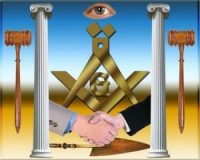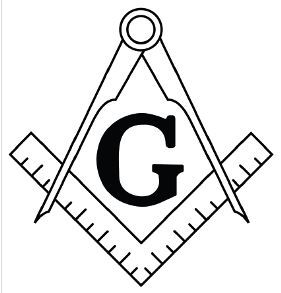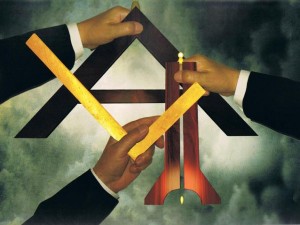
THE PREROGATIVE: OF THE GRAND MASTER TO MAKE FREEMASONS AT SIGHT, is a Landmark which is closely connected with the preceeding, one. There has been much misapprehension in relation to this Landmark, which misapprehension has sometimes led to a denial of its existence in jurisdictions where the Grand Master was perhaps at the very time substantially exercising the prerogative, without the slightest remark or opposition. It is not to be supposed that the Grand Master can retire with a profane into a private room, and there, without assistance, confer the degrees of Freemasonry upon him. No such prerogative exists, and yet many believe that this is the so much talked of right of “making Masons at sight.”
The real mode and the only mode of exercising the prerogative is this: The Grand Master summons to his assistance not less than six other Freemasons, convenes a Lodge, and without any previous probation, but on sight of the candidate, confers the degrees upon him, after which he dissolves the Lodge, and dismisses the brethren. Lodges thus convened for special purposes are called “Occasional Lodges.” This is the only way in which any Grand Master within the records of the Institution has ever been known to “make a Mason at sight.” The prerogative is dependent upon that of granting Dispensations to open and hold Lodges. If the Grand Master has the power of granting to any other Mason the privilege of presiding over Lodges working by his Dispensation, he may assume this privilege of presiding to himself; and as no one can deny his right to revoke his Dispensation granted to a number of brethren at a distance, and to dissolve the Lodge at his pleasure, it will scarcely be contended that he may not revoke his Dispensation for a Lodge over which he himself has been presiding, within a day, and dissolve the Lodge as soon as the business for which he had assembled it is accomplished. The making of Freemasons at sight is only the conferring of the degrees by the Grand Master, at once, in an Occasional Lodge, constituted by his dispensing power for the purpose, and over which he presides in person.

